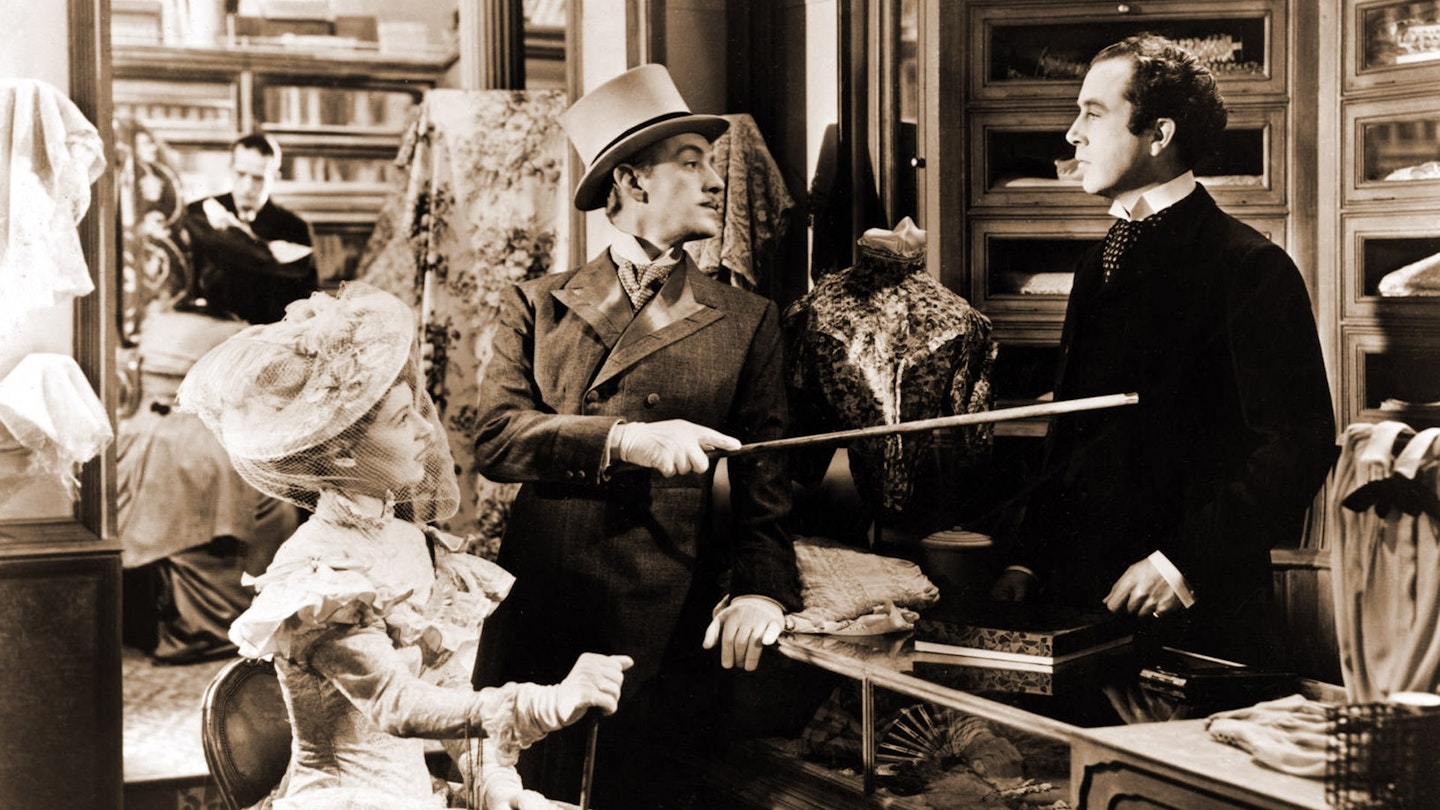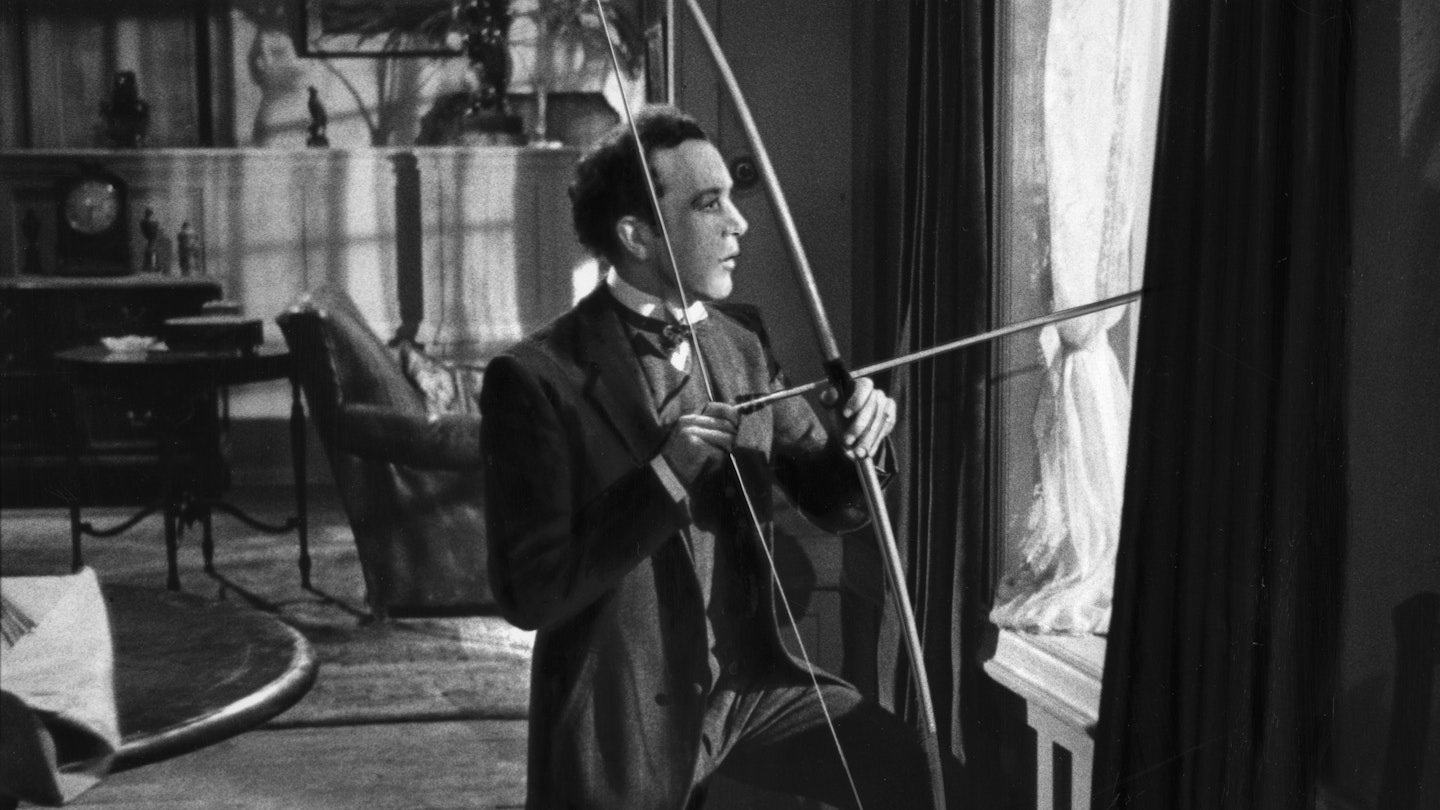It's hard to imagine a film about a conniving mass murderer being granted a U certificate, but the venerable Ealing Films managed just that with this blackly comic gem. Taking a Tennyson quote as its title ("Kind hearts are more than coronets/And simple faith than Norman blood"), Kind Hearts gently undermines the notions of nobility and inherited privilege. The dapper, genteel yet impoverished Louis Mazzini (Price), secures what he sees as his rightful position as the Duke Of Chalfont, by cold bloodedly, and often hilariously, murdering the eight relations that stand in his way. Dennis Price cuts a fine figure as the murderous Louis, but if Kind Hearts is remembered and justly celebrated for anything, then it is for the tour de force of one man, Alec Guinness.
Director Robert Hamer took the then unprecedented step ofsecuring Guinness — already established as a major British actor and renowned for his chameleon like versatility — to play the entire D'Ascoyne family, young and old, male and female. Guinness clearly relished the opportunity, fine tuning eight variations on the same family theme, from the delightfully doddery old Reverend to the young, puckish, slightly pickled Henry. Some of these roles were extended turns, some registered as mere cameos: the Admiral who goes down with his ship, and Guinness's drag turn as Agatha D'Ascoyne, a suffragette whose decision to leaflet London from a hot air balloon takes a fatal turn as Louis practices his marksmanship with a bow and arrow. "I shot an arrow in the air, she came to earth in Berkeley Square."
Agatha's initial ascent in the balloon — filmed in a field next door to Pinewood Studios — caused a few worries for Guinness. Concerned about the possibility of anything going wrong, he asked the producers if he was well insured. They told him he was, for the sum of £10,000, which Guinness promptly declared to be too small a sum. "I decided it wasn't nearly enough and informed them I wouldn't get up more than 15 feet unless they raised the insurance to £50,000." They refused, pointing out that Guinness had a rather well-qualified Belgian balloonist hidden in the basket with him. Guinness wouldn't budge and went no higher than the few feet he agreed — when the balloon takes off into full flight it is in fact the Belgian balloonist wearing Agatha's dress and wig. Guinness had the last laugh when a high wind pulled the balloon off course —the famed Belgian balloonist was found 50 miles away where he had to pitch into a river.
Much of the success of Kind Hearts must also be attributed to director Robert Hamer. Described by Guinness as a man, "who looked and sounded like an endearing but scornful frog," Hamer here moulds a kind of Henry Portrait Of A Serial Killer filtered through the whimsy of Baling. It is his sure touch (as director and co-writer) that makes this essentially morbid material as comically macabre, yet also acceptable and entertaining. He sets out his table right from the off, with the arrival of the hangman at the jail, housing the soon-to-be-executed — albeit for the wrong crime — Louis Mazzini. As Louis decides to write his arrogant confession (the voiceover for the movie), the hangman blithely discusses the nature of his business ("Some of them tend to be very hysterical. No sense of consideration.") while deciding how he should address his intended victim, settling on "Your grace". This is after all a comedy of geniality, despite the venality of the man in question.
Hamer ups the stakes as we flash back, greeting the young Louis ("In those days I never had any trouble with the sixth commandment") and mixing absurdity with the blackness (his father died at childbirth, his mother gets hit by a tram). Worst of all is the fact that Louis has to bury her in a hideous suburban cemetery. It is in this delicate balancing act between bad taste and bad manners, that Kind Hearts And Coronets is probably one of the few movies that can sell the death of twin babies by diphtheria as a comic moment. As a movie it remains a jewel in the crown of the finest comedy production line Britain ever saw. Baling would continue from strength to strength after this but, with the exception of The Ladykillers, it would never dabble in such splendidly dark material again. And it stands as Alec Guinness' finest series of comic screen moments.

